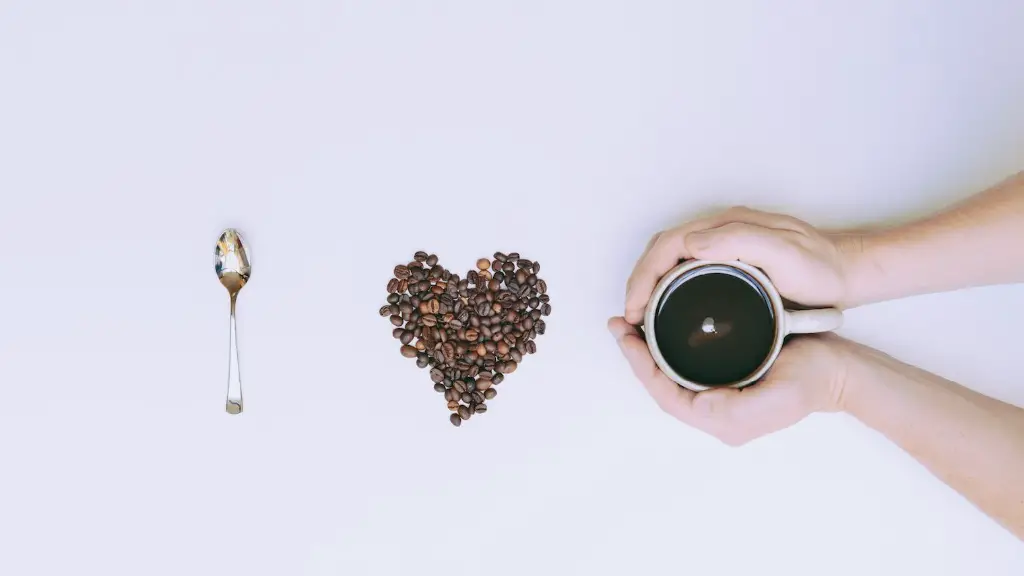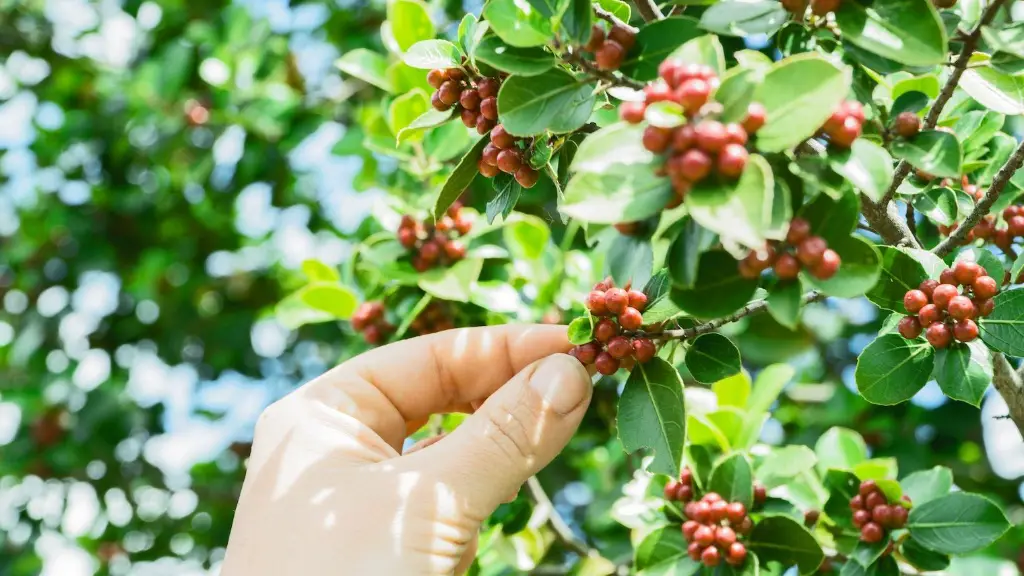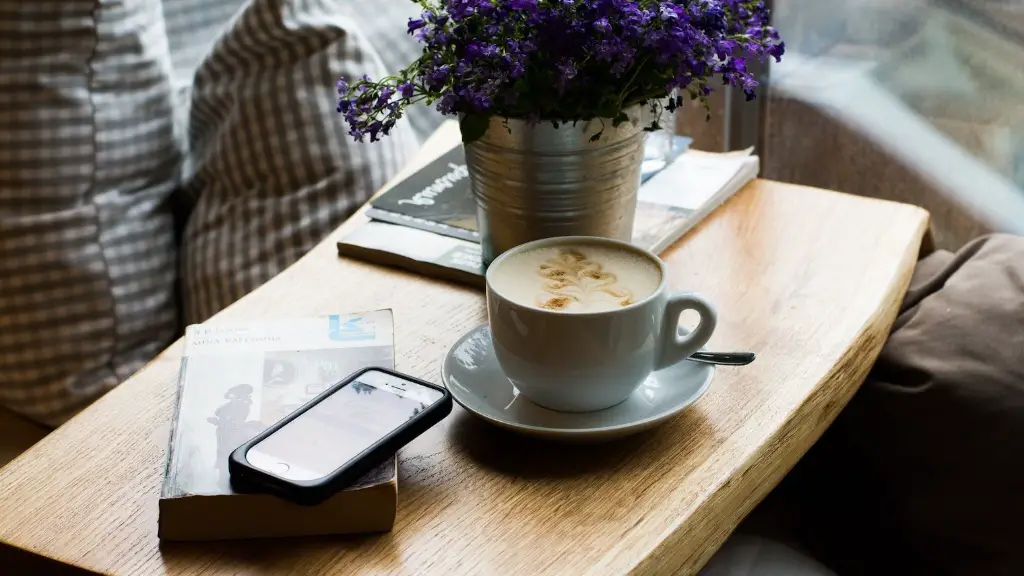A coffee bean contains between 0.1% and 0.2% caffeine. This means that a cup of coffee made from one bean has about 2mg to 4mg of caffeine.
The average coffee bean contains between 1 and 2 mg of caffeine.
Do you get caffeine from eating coffee beans?
Coffee beans are safe to eat in moderation, but eating too many can cause unpleasant side effects. Chocolate-covered coffee beans may also contain excess calories, sugar, and fat.
Eating coffee beans is a great way to get a caffeine boost without having to drink a lot of coffee. Even though the beans contain less caffeine than coffee, the way the body digests them gives more energy. A serving size of eleven espresso beans will make a person feel like they finished drinking two cups of coffee.
How many coffee beans can you eat
It’s safe to eat around 20-30 coffee beans per day, as long as you’re not pregnant or sensitive to caffeine. This is equivalent to around 7-10 beans per serving, which is the amount of caffeine in a regular 8 oz cup of coffee.
One gram of coffee beans contains 12-27mg of caffeine. Arabica coffee beans have a caffeine content of 12mg per gram, while robusta coffee beans have a caffeine content of 27mg per gram.
What happens if you eat one coffee bean?
Caffeine is absorbed more quickly into the bloodstream when it is chewed, as opposed to when it is drunk in liquid form. Therefore, a single bean, which has less caffeine than a cup of coffee, will still give you a quick boost of energy. However, the effects will wear off more quickly as well.
Caffeine is a stimulant that is found in coffee, tea, and chocolate. It is also added to some sodas and energy drinks. Caffeine can be beneficial in small doses, but consuming too much can lead to side effects such as anxiety, jitters, and insomnia. up to 400 mg of caffeine is considered safe for most people, but everyone reacts differently to caffeine. If you are sensitive to caffeine, it is best to limit your intake to less than 200 mg per day.
Is it OK to eat espresso beans?
Since coffee beans are typically consumed in very small quantities, there is little to no risk of eating them. The main concern with eating coffee beans is choking, as they can be a choking hazard if not chewed properly. For most people, this is not a concern, as they can simply chew the beans thoroughly before swallowing. However, if you have any concerns, it is best to consult with your doctor or healthcare provider before consuming them.
The industry standard for a single shot of espresso coffee is seven grams of beans per cup. That’s about 56 roasted coffee beans in shot of coffee (green beans weigh much more than roasted coffee beans).
What bean is higher in caffeine
Robusta beans have a strong flavor, high caffeine content, and are used in many commercial coffees. They are also known for being less expensive than Arabica beans.
If you’re looking to get more zinc in your diet, there are a few things you should know. First, coffee can interfere with your body’s ability to absorb zinc from food. So, it’s best to avoid drinking coffee after eating foods that are rich in zinc, like oysters, red meat, poultry, beans, and nuts. Second, some foods can actually help your body absorb more zinc. So, if you’re looking to increase your zinc intake, make sure to include foods like whole grains, yogurt, and dark leafy greens in your diet.
Is it OK to drink coffee 3 times a day?
Coffee is a great way to get your daily dose of caffeine, which has been shown to have some health benefits. However, it’s important to monitor your intake to avoid any negative side effects. According to the Dietary Guidelines for Americans, most women can safely drink three to five cups of coffee a day with a maximum intake of 400 milligrams of caffeine.
The biggest concern from drinking 15 cups of coffee is excess caffeine intake. According to MayoClinic.com, about 200 to 300 milligrams per day of caffeine, or roughly 2 to 4 cups of brewed coffee, is safe for most people. However, drinking 15 cups of coffee would put a person well over the safe limit for caffeine intake. Caffeine is a stimulant and can cause side effects such as nervousness, irritability, insomnia, and an upset stomach. Too much caffeine can also lead to more serious problems such as hypertension and heart palpitations. If you’re concerned about your caffeine intake, talk to your healthcare provider.
What is 200mg of caffeine equal to
Pregnancy is a time when you need to be extra careful about what you put into your body. Caffeine is a stimulant and can cross the placenta, which means it can potentially affect your baby’s heart rate and sleep patterns.
Most experts agree that it’s safe to have up to 200 milligrams of caffeine per day during pregnancy. This is equivalent to two 8-ounce cups of brewed coffee. If you’re worried about your caffeine intake, talk to your healthcare provider. They can help you determine if you need to cut back on your caffeine consumption.
There is no definitive answer to how much caffeine is safe. However, most experts agree that consuming 400 mg per day is safe for most people. Consuming more than this may lead to side effects such as anxiety, restlessness, and sleeplessness. It is also important to be aware that the caffeine content of coffee can vary widely. For example, an 8-ounce cup of coffee from a coffee shop may contain anywhere from 30-180 mg of caffeine. So, it is important to be aware of how much caffeine you are consuming.
Is 200mg of caffeine a day a lot?
Caffeine is a stimulant that can have adverse effects if consumed in large quantities. However, up to 400 mg of caffeine per day is generally considered safe for most healthy adults. This is equivalent to approximately four cups of brewed coffee, ten cans of cola, or two energy drinks. It is important to note that the actual caffeine content of beverages can vary widely, especially among energy drinks. Therefore, it is important to be aware of the caffeine content of the drinks you consume and to limit your intake accordingly.
No, humans cannot live on coffee. Coffee is a stimulant, and while it can help people stay awake, it is not a sustainable source of energy. Humans need to eat food to survive, and coffee is not a substitute for food.
Are coffee beans a laxative
If you consume too many coffee beans, it can have a laxative effect. Additionally, if you do this continuously, it can lead to high cholesterol over time.
Coffee beans are safe to eat, but you should be aware that they are high in both caffeine and acidity. If you have never tried to eat coffee beans before, start with a small amount and see how your body reacts.
Warp Up
One coffee bean contains about 95 milligrams of caffeine.
The average coffee bean has between 10 and 20 milligrams of caffeine.





